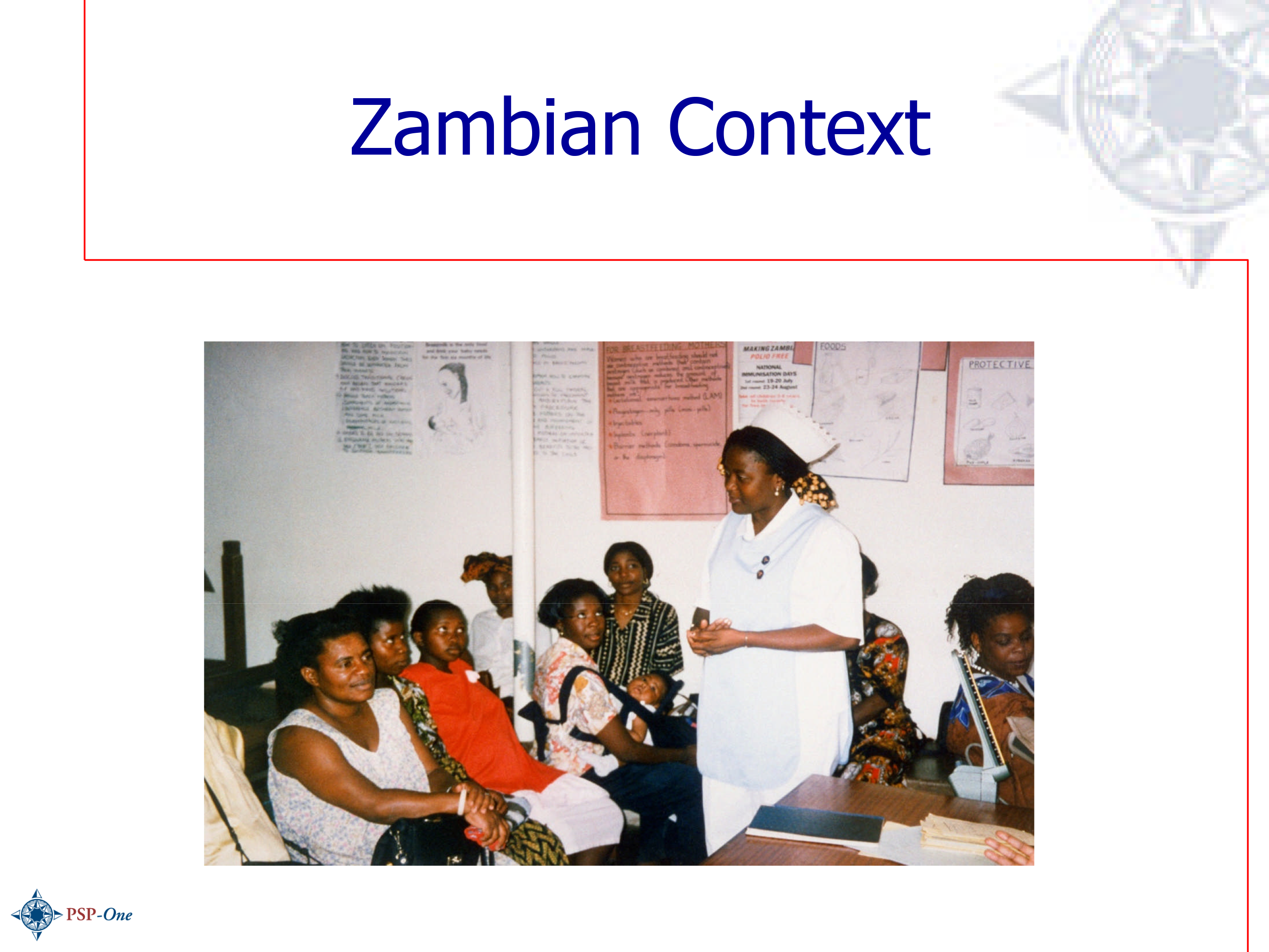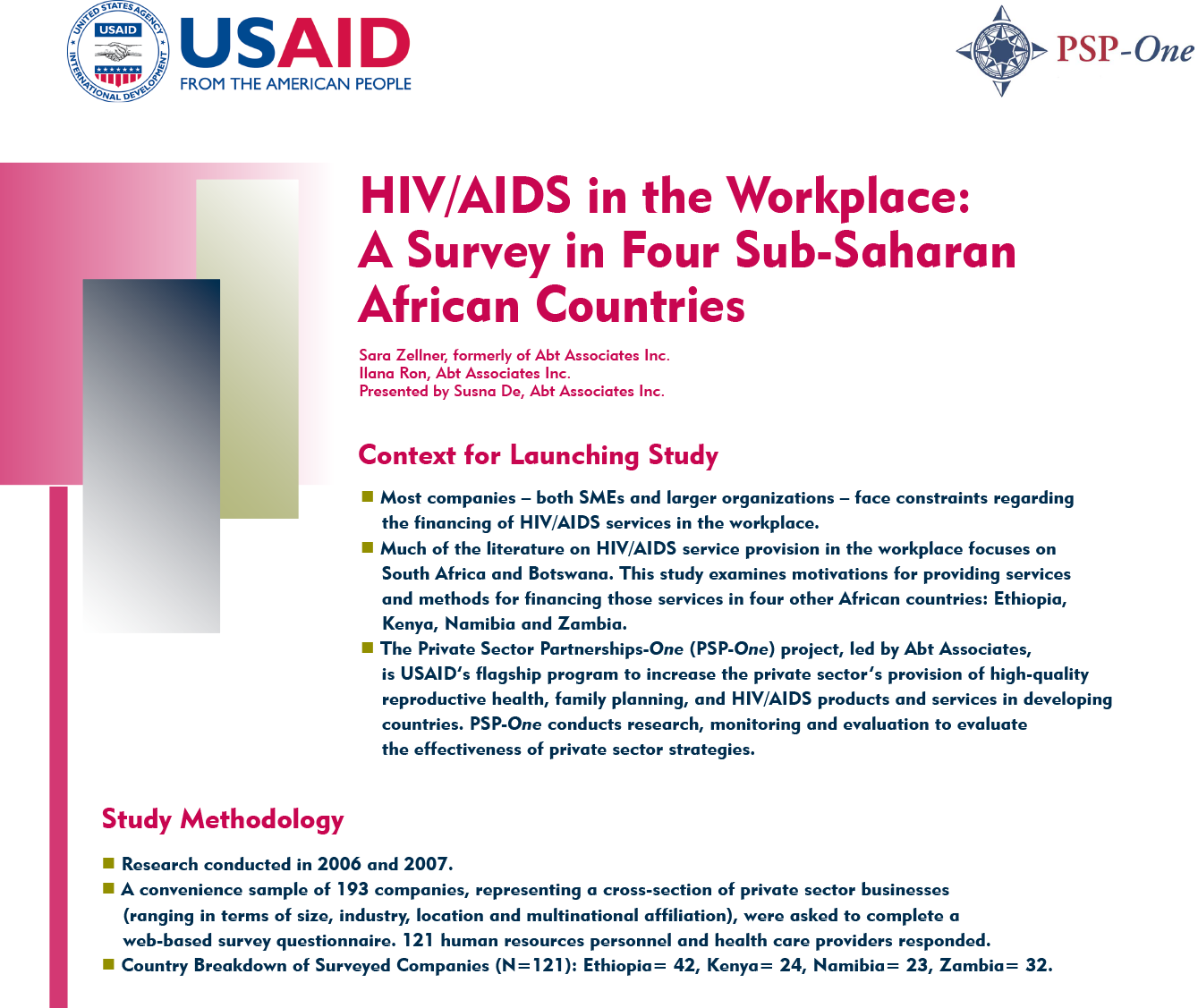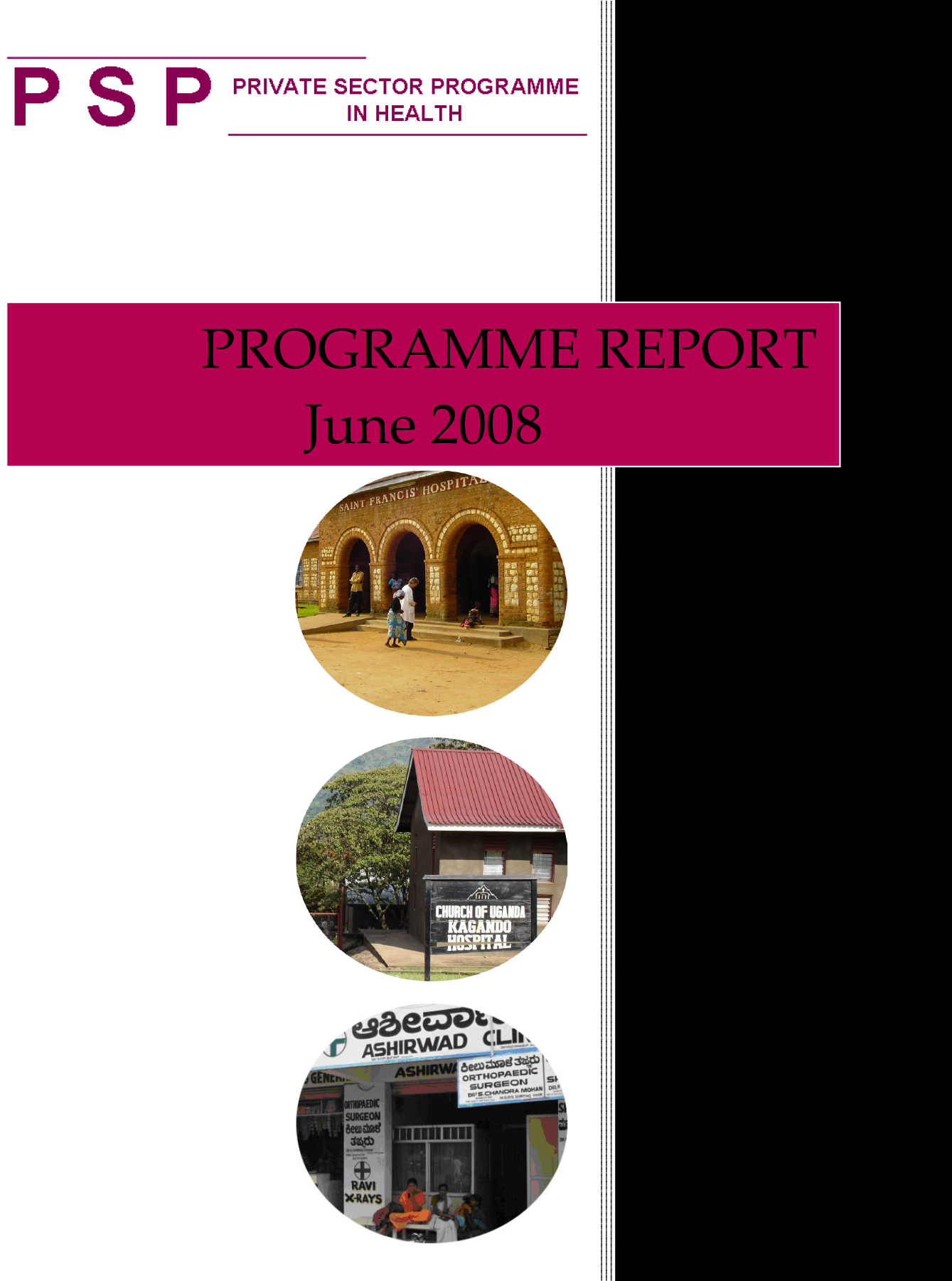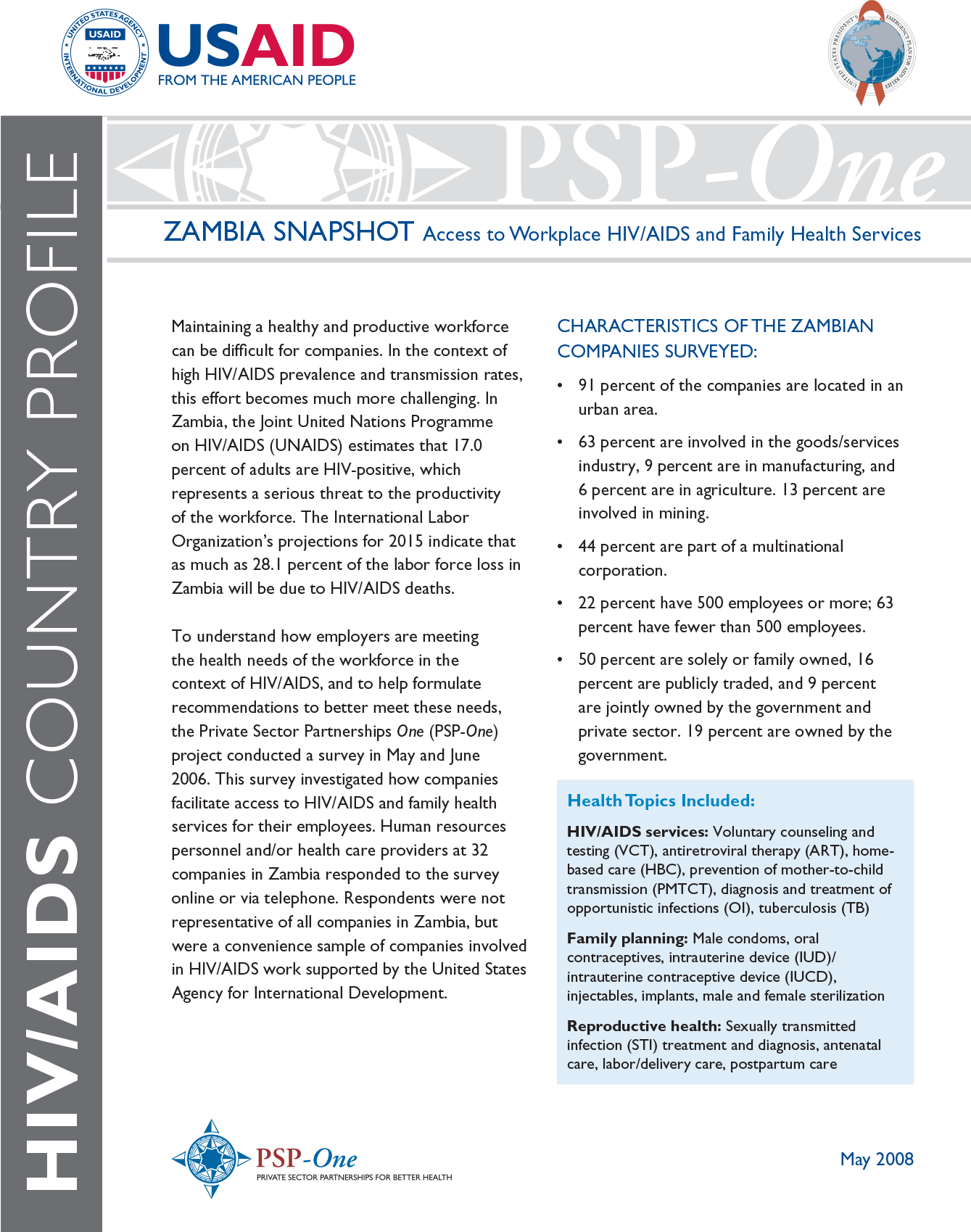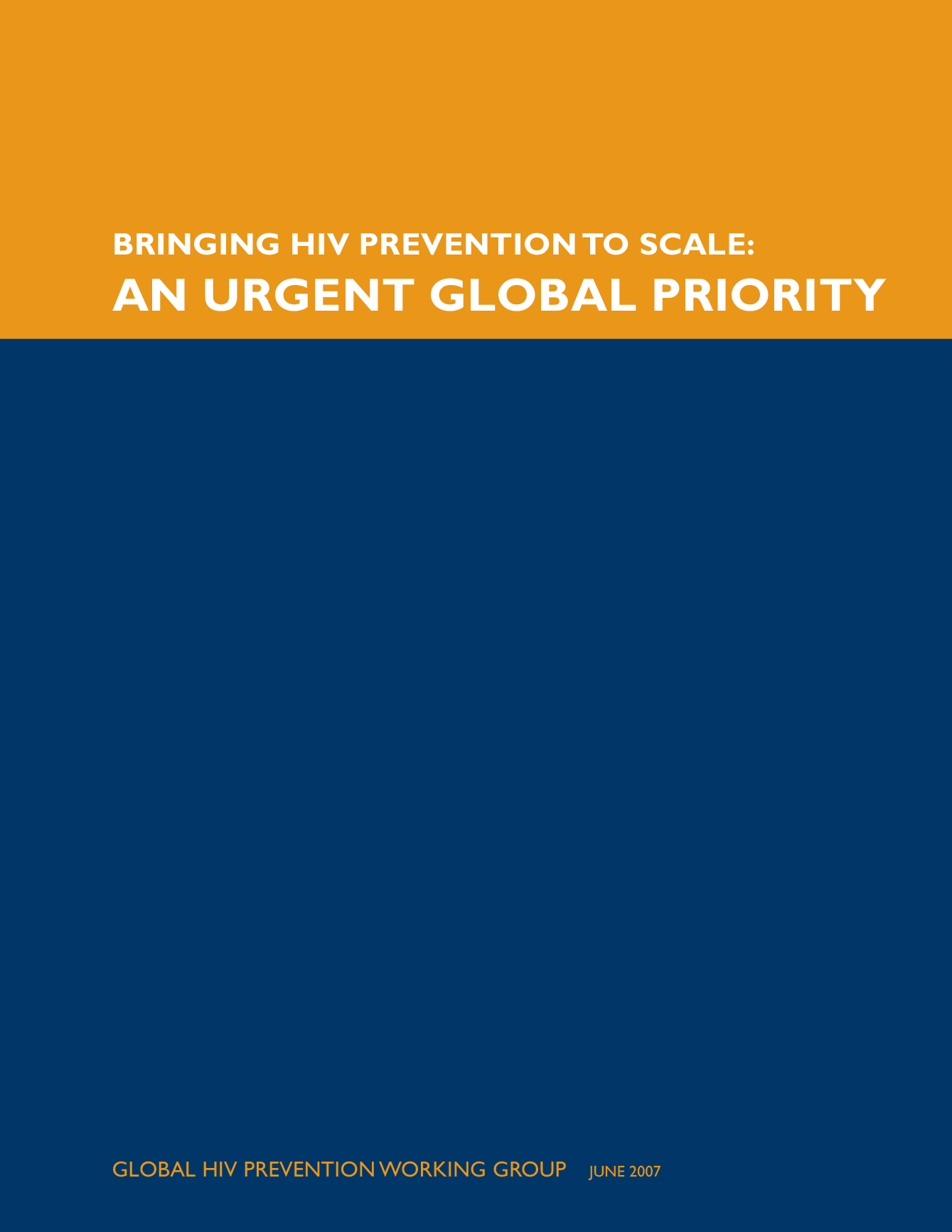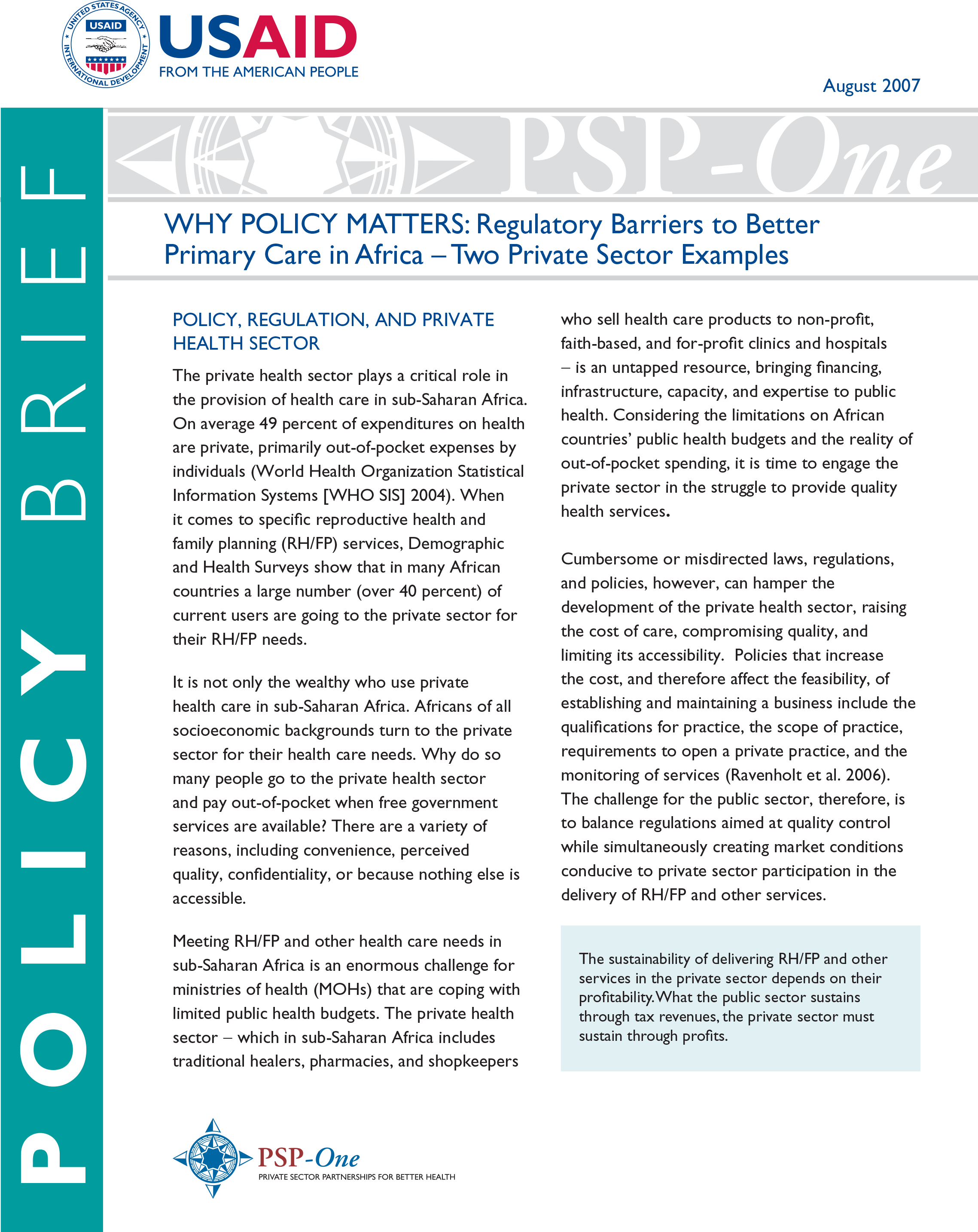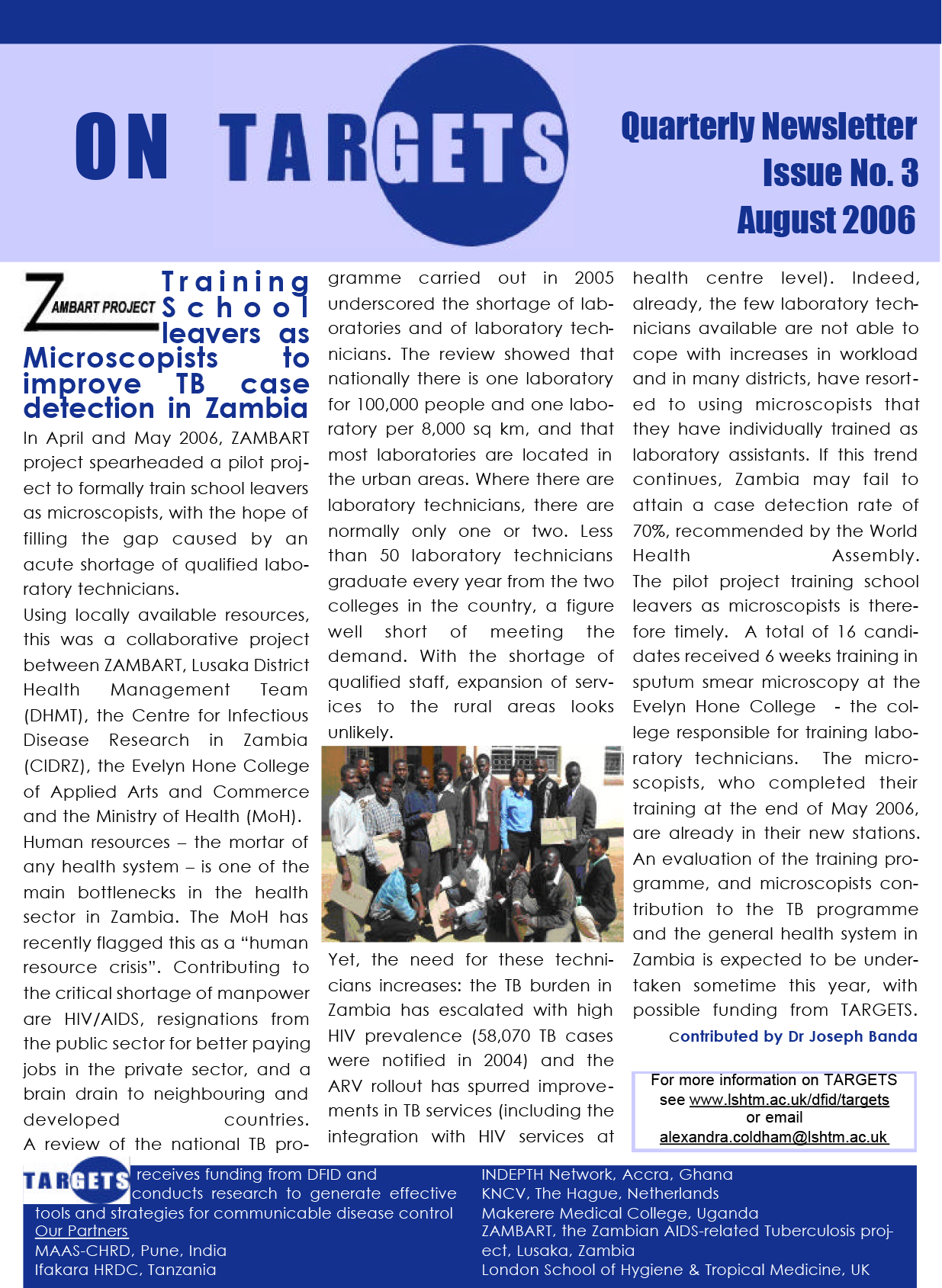
Resource Library
The Dividend of Compromise and Patience: A Policy Win for Zambia
PSP-One End-of-Project Conference
Resource Type : Presentation
Country : Zambia
Year : 2009-09-30T09:30:00
Language : English
Project : SHOPS

Resource Library
FINANCING AND BUSINESS DEVELOPMENT NEEDS OF PRIVATE HEALTH CARE PROVIDERS IN ZAMBIA
This report assesses the business-development needs, particularly financial and training, of private health care providers in Zambia. This information will guide the development of a program that was started in 2007 to expand access to financing for the private health sector. Specifically, assessment findings will
- provide market data to assist interested banks and microfinance institutions to develop loan
- products and marketing strategies for the private health sector
- provide a needs assessment and additional background for a training course developed for private
- health care providers on financial management
- inform government policies on health promotion with the private health sector
Resource Type : Report
Country : Zambia
Year : 2009-09-21T14:45:00
Language : English
Project : SHOPS

Resource Library
Private Sector Role in Health Supply Chains
Strong supply chains are essential to effective health care delivery in all sectors – public, faithbased, employer-provided and private. In OECD countries, supply chains rely heavily on the private sector for supply, distribution and provision of key auxiliary services even when the health system itself is largely or exclusively public sector. These supply chains work quite well in ensuring consistent availability of high quality product. In contrast, health supply chains in many Low and Middle Income Countries (LMICs) perform poorly and have less private sector involvement. This observation leads us to ask: How might a greater role for the private sector and/or greater leveraging of private sector supply chain best practices improve health supply chains in LMICs? This study has two objectives: 1) to provide an understanding of the current and potential role for the private sector in health supply chains; and 2) to provide recommendations regarding how national governments, policymakers, private investors, international donors and foundations should think about investment in private sector health care initiatives for LMICs. We define health supply chain as the network of entities that plan, source, fund, and distribute products and manage associated information and finances from manufacturers through intermediate warehouses and resellers to dispensing and health service delivery points. This paper puts a primary focus on the activities of the for-profit private sector and the deployment of for-profit best practices by other sectors in the health supply chain. It is informed by in-depth case studies of health supply chains in Ghana and Zambia, as well as interviews of over 40 supply chain and health experts in 12 countries about private sector initiatives in those countries. Over 40 private sector-oriented initiatives which seek to bring new models to LMIC supply chains were identified and reviewed. The major findings are as follows:
Resource Type : Report
Country :
Year : 2008-12-11T14:30:00
Language : English
Project : SHOPS

Resource Library
HIV/AIDS in the Workplace: A Survey in four Sub-Saharan African Countries-Poster Presentation
The International AIDS Economic Network (IAEN) hosted it's fifth pre-conference meeting, held August 1-2 in Cuernavaca Mexico, prior to the XVII International AIDS Conference in Mexico City. The following is the Poster Exhibition Presentation, HIV/AIDS in the Workplace: A Survey in four Sub-Saharan African Countries, by Ilana Ron, Abt Associates/PSP-One, Sara Zellner, formerly of Abt Associates/PSP-One, and presented by Susna De, Abt Associates. The presentation is related to international work in HIV/AIDS made by Abt Associates, in conjunction with PSP-One.
Resource Type : Presentation
Country : Ethiopia, Kenya, Namibia, Zambia
Year : 2008-09-05T10:15:00
Language : English
Project : SHOPS

Resource Library
PSP Private Sector Programme in Health- Programme Report
The Private Sector Programme in Health – PSP – is a collaborative research programme which started out with a Sida-funded project coordinated by the Division of International Health (IHCAR) at Karolinska Institutet, Stockholm, Sweden and the International Health Systems Program (IHSP), Harvard School of Public Health, Boston, USA. The programme seeks to strengthen health systems' performance and their outcome in terms of improved health by exploring the non-state (private) health sector and how it can be involved in providing adequate health care to the population, in particular those in most need. The programme has been supported by the Swedish International Development Cooperation Agency (Sida) from 2002-2008. The programme has so far engaged eight institutions in China, Vietnam, Laos, India, Uganda and Zambia in the research collaboration.
Resource Type : Report
Country : India, Uganda, Vietnam, Zambia
Year : 2008-08-01T14:30:00
Language : English
Project : SHOPS

Resource Library
HIV/AIDS Services Through the Workplace: A Survey in Four Sub-Saharan African Countries
For over a decade, many businesses have experienced increased costs and reduced productivity as a result of HIV/AIDS. Many companies are responding to the HIV/AIDS crisis through investment in prevention programs, especially in employee education and condom distribution. A smaller, but increasing number have supported a range of care and treatment services for employees and their families. However, not enough is known about the factors that influence the choices companies make in HIV/AIDS service provision and the range of approaches taken to increase access to services. To address this knowledge gap, the Private Sector Partnerships-One project (PSP-One) conducted a survey of companies in Ethiopia, Kenya, Namibia, and Zambia in 2006-2007. PSP-One selected the sample based on a list of companies that donor agencies had previously worked with related to HIV/AIDS issues. Human resources personnel or health clinicians from 121 companies participated in the survey via an online, self-administered questionnaire, or phone interviews. The data were then analyzed using univariate and bivariate analyses. Additional qualitative data were collected through key informant interviews with company personnel from four companies in each of the study countries.
Resource Type : Report
Country : Ethiopia, Kenya, Namibia, Zambia
Year : 2008-07-09T12:00:00
Language : English
Project : SHOPS

Resource Library
ZAMBIA SNAPSHOT Access to Workplace HIV/AIDS and Family Health Services
To understand how employers are meeting the health needs of the workforce in the context of HIV/AIDS, and to help formulate recommendations to better meet these needs, the Private Sector Partnerships One (PSP-One) project conducted a survey in May and June 2006. This survey investigated how companies facilitate access to HIV/AIDS and family health services for their employees. Human resources personnel and/or health care providers at 32 companies in Zambia responded to the survey online or via telephone. Respondents were not representative of all companies in Zambia, but were a convenience sample of companies involved in HIV/AIDS work supported by the United States Agency for International Development.
Resource Type : Report
Country : Zambia
Year : 2008-06-17T10:15:00
Language : English
Project : SHOPS

Resource Library
PWG HIV Prevention Report
The PWG HIV Prevention Report is a supplementary report presented by Robert Porter and Margot Fahnestock during their panel presentation, "HIV Risk in Africa: Are We Targeting the Right Population?"
Resource Type : Report
Country : Cambodia, Haiti, India, Kenya, Zambia, Zimbabwe
Year : 2008-04-28T13:00:00
Language : English
Project : SHOPS

Resource Library
Why Policy Matters: Regulatory Barriers to Better Primary Care in Africa - Two Private Sector Examples
The Abt Associates led-PSP-One project developed this Policy Brief that examines the recent experiences in Zambia and Ethiopia that illustrate why policy matters for developing the private health sector and explains the regulatory barriers to primary care in Africa.
Resource Type : Brief
Country : Ethiopia, Zambia
Year : 2007-08-01T12:00:00
Language : English
Project : SHOPS

Resource Library
On Targets: Quarterly Newsletter, Issue #3, August 2006
Targets receives funding from DFID and conducts research to generate effective tools and strategies for communicable disease control. This is their quarterly newsletter from August 2006.
Resource Type :
Country : South Africa, Zambia
Year : 2006-08-01T11:15:00
Language : English
Project : SHOPS
Pagination
- Previous page
- Page 3
- Next page


